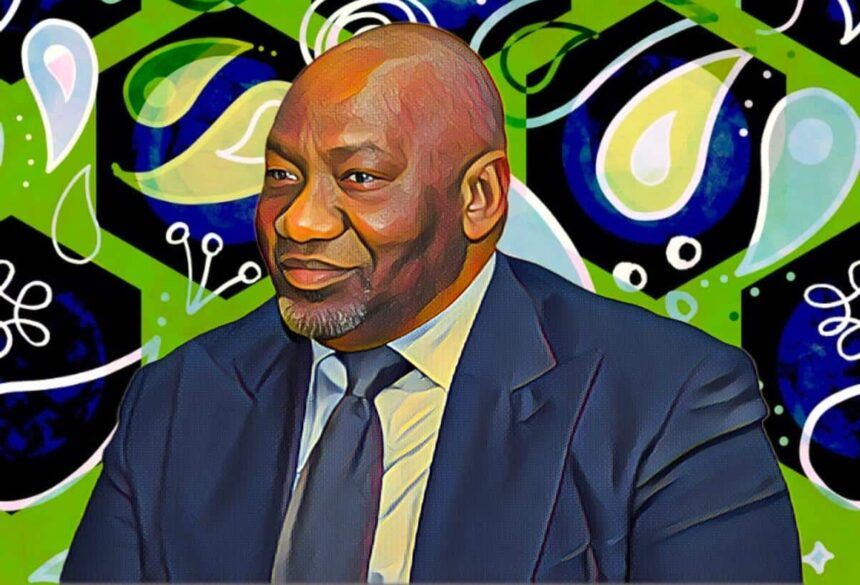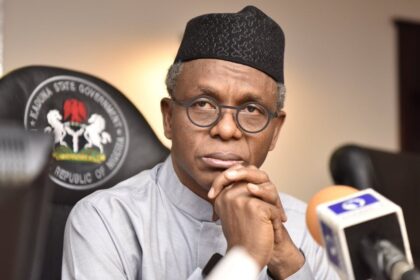The tides of history have a way of singling out men whose visions are too grand to be confined within borders. Indeed, like an indefatigable mariner, Benedict Peters rides the storms, bolstered by a tenacious spirit and mulish resolve to excel and arrive with his dreams intact, on pliant coasts. Today, that unyielding spirit of his has paid off. It has seen him through the teething and oft tumultuous stages of the cut-throat world of global commerce till he emerged unhurt and stronger in spirit and resolve like a champ.
Yet, from the pit of envy, some have chosen to forge a false crown of controversy for a man whose very life’s work is founded on service, not scandal.
Benedict Peters does not trade in noise. He builds—quietly, consistently, powerfully. He builds bridges between nations, breathes life into economies, and etches his legacy not in the temporary ink of media spin but in the iron permanence of infrastructure, investment, and human impact. Still, mischief masquerading as media seeks to reduce this African lion to a footnote of sensationalism.
Let it be said without stammer: the tales being peddled around are not revelations; they are distortions. They are not journalism; they are echoes from a chamber of resentment. This is not scrutiny; it is sabotage. And this, this very moment, demands the loud clarity of truth and the lyrical audacity of justice.
For Peters is no stranger to trials. Like the oil his empire refines, he has endured pressure, fire, and filtration. And what has emerged is a man as rare as platinum, as steady as an African sunrise—an unflinching symbol of what African capital can become when wielded with vision, integrity, and grace. Let those who misunderstand greatness learn quickly: Benedict Peters is not the problem. He is the promise.
Beyond the Frantic Melodrama
Recent reports circulating within the Ghanaian media ecosystem have attempted, with unfortunate vigour, to paint Benedict Peters in hues of controversy. Chief among these accusations is a tale of his supposed arrest over an alleged deployment of an “armed militia” that obstructed access to a luxury estate near the Jubilee House in Accra. This sensational claim is not only false but wholly unfounded.
Veteran journalist and Ovation Publisher, Chief Dele Momodu, swiftly and courageously addressed the issue, describing it as an “overblown story”—a caricature of reality. Having spoken directly with Peters, Momodu affirmed that no arrest took place. Instead, what transpired was a moment of misunderstanding, promptly and professionally handled by Ghanaian authorities.
Let us be clear: Benedict Peters is not a man of violence. The notion that he would deploy an armed militia is as ridiculous as it is repugnant. Like many distinguished global figures, Peters employs private security for personal safety—none of whom carry arms. In a world where even musicians and movie stars are flanked by bodyguards, it is absurd to vilify a high-profile businessman for doing the same.
What, then, fuels these attacks? The answer lies not in truth but in envy.
Interestingly, however, Peters’ businesses provide jobs, pay taxes, and bolster the nation’s energy and economic sectors. His investments are not shackled to politics; they are tied to people—Ghanaian workers, families, communities. To question his presence is to undermine Ghana’s own progress.
Luxury, Security and the Narrative of Witch-Hunt
Another thread in the fabric of falsehoods concerns Peters’ lifestyle—particularly claims that he owns over 20 luxury cars. Yet, for a man who has built multi-billion-dollar enterprises across continents, what is a convoy but a small symbol of his success?
We must resist the impulse to criminalise affluence, especially when it is achieved through diligence, intellect, and the honest grind of enterprise. Peters’ wealth is not stolen; it is sown—across oilfields, business ventures, and economic partnerships. To own luxury cars is not a crime; to lie about a man’s character to suit petty narratives is.
A Visionary Builder, Not a Villain
Benedict Peters is not an invader, but an investor. He is not a threat, but a thriving thread in the fabric of African economic renaissance.
As founder of Aiteo Group, Peters has transformed the energy sector in Nigeria nay Africa. His influence is not confined to balance sheets, but flows into the veins of economies—reviving infrastructures, enabling industrial growth, and empowering the continent’s workforce. His contributions to Ghana’s economic vitality are tangible, traceable, and tremendous.
To cast aspersions on Benedict Peters is to cast shadows on a continent in dire need of light-bearers. His story is not one of scandal, but of success. From humble beginnings, he has risen to become a symbol of African ingenuity and resilience—a beacon of what is possible when bold dreams meet honest work.
In a time when Africa must rise above dependency and mediocrity, men like Peters offer more than business acumen—they offer blueprints for transformation. He is not merely an African businessman; he is a continental luminary, a citizen of humanity, and a custodian of tomorrow’s promise.




